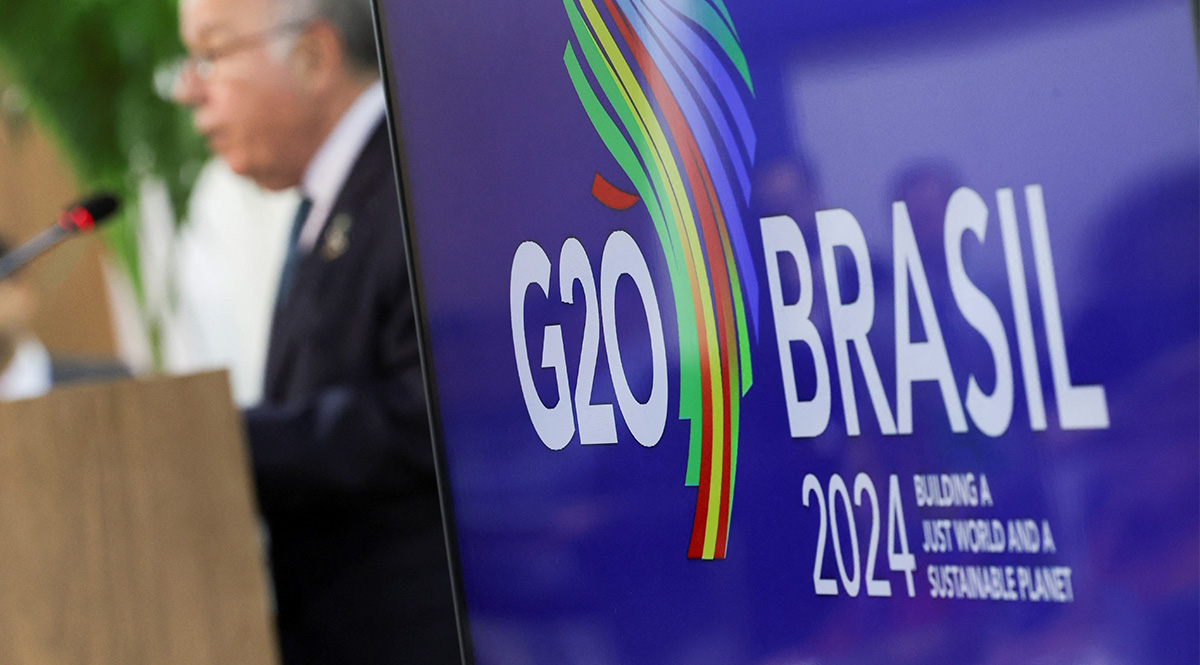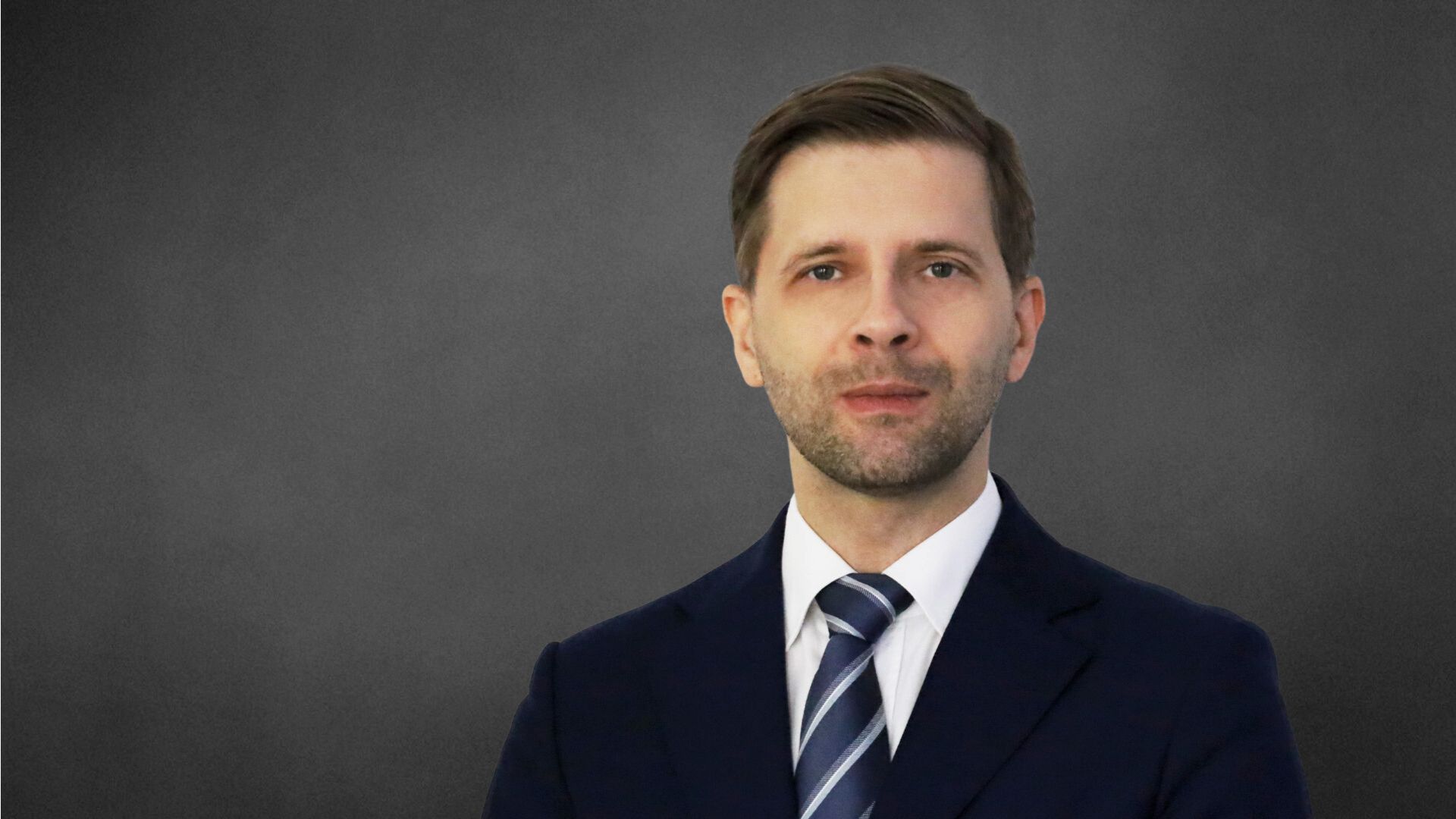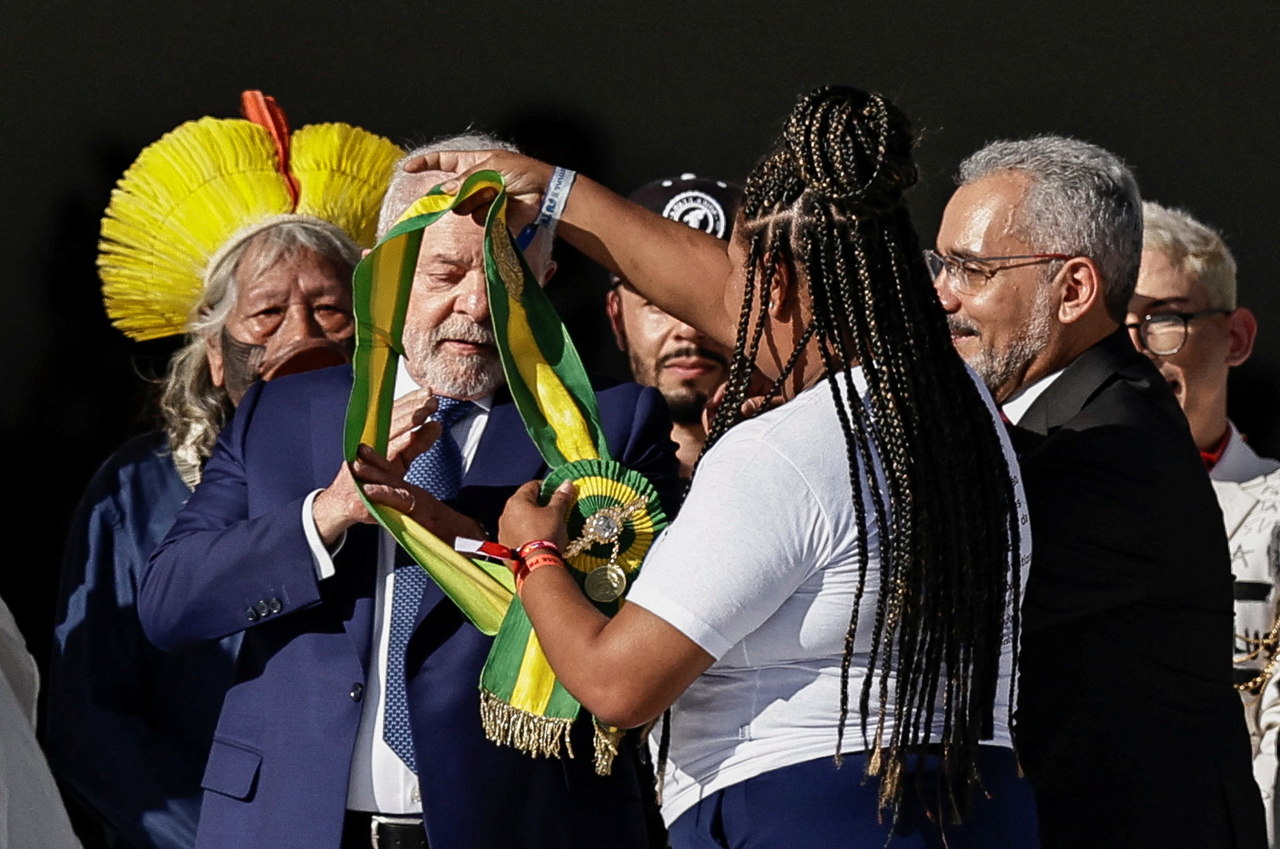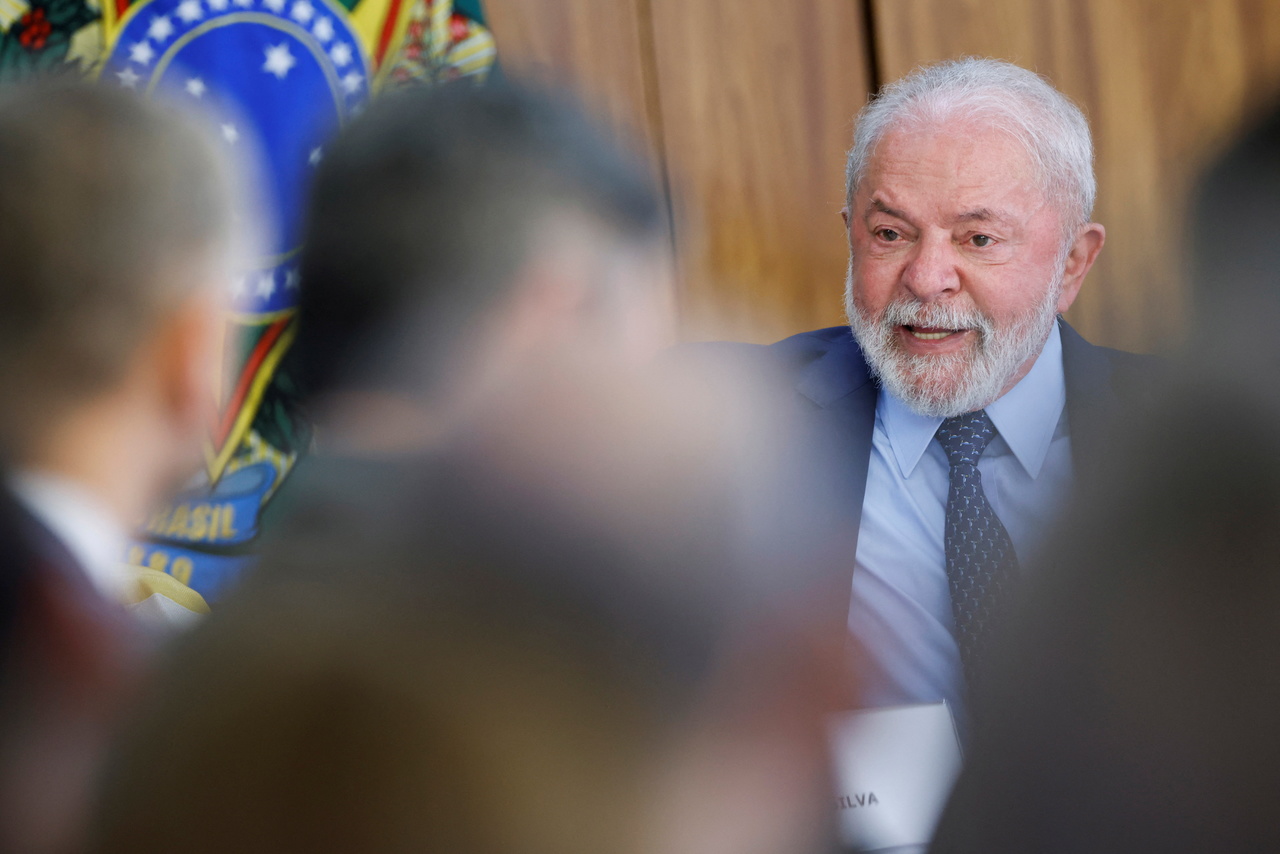Brazil's G20 Presidency Prioritises Interests of the Global South
Social inclusion and the fight against hunger and poverty, sustainable development, and the energy transition, as well as reforms of the global governance system are the main themes of Brazil’s G20 presidency. For the government of Lula da Silva, who became president in January 2023, this is an opportunity to reinforce the country’s global relevance as a defender of the interests of developing countries, among other goals. The G20 members’ divergent visions of changes in the global order, approaches to conflicts, and the green transformation will complicate Brazil’s presidency plans.
 RICARDO MORAES / Reuters / Forum
RICARDO MORAES / Reuters / Forum
The incumbent Brazilian government considers prominent international functions to be important instruments that help fulfil its ambitions of restoring the active and assertive foreign policy carried out during Lula’s two previous presidencies (2003-2010). It uses these functions to rebuild the country’s reputation and relevance, which, in Lula’s view, were both lost by the government of his predecessor, Jair Bolsonaro. The first year of the current government saw the conclusion of Brazil’s two-year term as a non-permanent member of the UN Security Council and the assumption of the G20 presidency on 1 December. In 2025, the country will host the COP30 climate conference and preside over BRICS. Lula’s high international activity—he visited more than 20 countries in 2023—and choice of topics of the G20 presidency reflect a belief that Brazil has now a special opportunity to strengthen its position and influence in international relations.
Agenda
“Building a just world and a sustainable planet” is the motto Brazil has chosen for its G20 presidency. Its three main themes comprise social inclusion and the fight against hunger and poverty, the energy transition and sustainable development in its three dimensions—social, economic and environmental—and reforms of global governance.
About 140 meetings are on the presidency’s agenda, culminating in the G20 Leaders’ Summit in Rio de Janeiro on 18-19 November. Among the non-members the host has invited to all the events are Angola, Spain, Egypt, Nigeria, Norway, Portugal, Singapore, and the United Arab Emirates.
Brazil emphasises the need for a greater contribution from non-governmental actors. The “Social G20” component, announced by Lula at the G20 summit in New Delhi last year and comprising 13 engagement groups, including representatives of civil society (C20), women’s groups (W20), business (B20), and think tanks (T20), serves this purpose. They will present their findings at a meeting on 15-17 November, just before the G20 summit.
Premises and Goals
In the concept note of its presidency, Brazil describes the G20 as a unique and influential international forum capable of forging global solutions. It considers the diversity of the group’s members as an asset. Among the main challenges facing it, the presidency cites poverty and hunger, armed conflicts and their “catastrophic humanitarian consequences”, wide fluctuations in food and energy prices, persistent inflation that impacts living standards, a worsening of the debt issue by prolonged high interest rates in developed countries, and a climate crisis amplified by “old and new geopolitical tensions”. For Lula’s government, these processes mainly hit developing countries and “inequality in all its dimensions” is the main root cause.
Brazil justifies the choice of main themes of its G20 presidency by pointing first at the insufficient progress or even regression in fulfilling most of the UN Sustainable Development Goals. It links “increasing political extremism” in various countries with the widening socio-economic inequalities. As a solution, it prioritises establishing a Global Alliance against Hunger and Poverty, aimed at promoting and integrating proven national instruments to combat these problems, help raise funding, and facilitate exchange of experience. An executive committee established in cooperation with selected international organisations would manage the initiative.
The Lula government emphasises the close relation between sustainable development and social inclusion agendas. It also stresses that rich countries should fulfil historical commitments and show solidarity to developing countries, for example, on debt. It proposes establishing a task-force for Global Mobilisation Against Climate Change as a mechanism coordinating G20 action more effectively and thus supporting global climate commitments within the UN, among other platforms. Brazil would like the G20 to adopt a position on differing paths of the energy transition in individual countries, including how to increase the share of clean energy, taking into account the problem of the costs and social impacts of this process. It singled out the bioeconomy initiative, meaning the responsible use of natural resources in economic development. It also wants to address the topic of “green protectionism”, linked to Brazil’s criticism of EU policies, including instruments such as a border carbon tax and a ban on imports of products from areas of illegal deforestation.
Brazil argues that global governance reforms are needed because the world is moving towards a multipolar order and the current system is based on institutions created in a different reality. It points out that “conflicts in Ukraine and the Middle East” have weakened the UN, among other organisations, which were supposed to uphold global peace and security. It believes that the G20 should work together to make the UN and the WTO more effective and reduce “inequalities” in their decision-making processes by strengthening the voice of developing countries. According to Lula’s declaration, as long as the latter are not listened to and adequately represented in international forums and organisations, they will not respond to calls from other countries for support “in solving global crises”. Brazil also sees the solution in strengthening multilateralism and restoring diplomacy as a fundamental instrument in international relations.
The Brazilian government also has been trying to not let contentious issues such as the war in Ukraine or Gaza dominate G20 discussions. It hopes that these issues would be discussed only at the foreign ministers’ meeting in Rio de Janeiro on 21-22 February. It, however, invited Russia’s Vladimir Putin to the November G20 summit on the premise that isolation hampers the dialogue and suggested vaguely that Brazil—although a party to the Treaty of Rome—might not comply with the ICC warrant for the arrest of the Russian leader.
Conclusions and Outlook
Brazil wants to use the G20 presidency to raise its profile in debates on global challenges as an important defender of the interests of the Global South. It will find it relatively easy to forge a consensus on G20 members’ support for the initiatives to combat hunger and climate change, as well as on differentiated modes of economic transformation. Difficulties, however, may appear when fulfilling pledges, especially financial ones. It remains to be seen to what extent Brazil will convince the rich G20 members to support developing countries more strongly.
It will be difficult for the Brazilian presidency to ignore the impact of growing tensions and deepening international divisions over assessments of ongoing armed conflicts, exemplified by Lula’s recent statement equating Israeli military action in Gaza with the Holocaust. It is doubtful that Putin will come to the summit, but for the G20 members who support Ukraine, Brazil’s openness to it is a form of legitimising the head of an aggressor state. Brazil’s G20 presidency, together with the previous presidencies of Indonesia and India and the next one of South Africa, will help to reinforce the group’s status as an important mechanism for dialogue that allows for greater representation and promotion of the interests of the countries of the Global South.
Brazil’s increased international engagement should prompt the EU to work more closely with the country, including rebuilding their strategic partnership. This will be difficult given the prolonged impasse around ratification of the EU-Mercosur agreement and Brazilian criticism of the EU’s Green Deal instruments, which affect third countries. It is in Poland’s interest to intensify political cooperation with Brazil, which would serve to strengthen Poland’s importance and agency as a significant EU member. One opportunity for this will be provided by the Polish presidency of the EU Council in the first half of 2025. It will coincide with the preparation of the next summit of the Union with the Community of Latin American and Caribbean States (CELAC) in the second half of next year and maybe the first EU-Brazil summit since 2014.





(1).jpg)